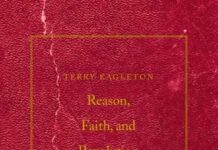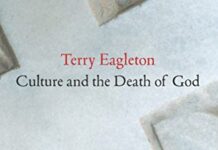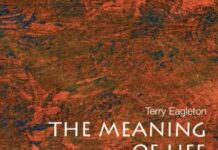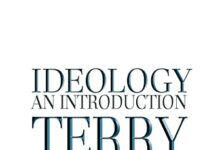
Ebook Info
- Published: 2013
- Number of pages: 378 pages
- Format: PDF
- File Size: 1.61 MB
- Authors: Terry Eagleton
Description
Written by one of the world’s leading literary theorists, this book provides a wide-ranging, accessible and humorous introduction to the English novel from Daniel Defoe to the present day. Covers the works of major authors, including Daniel Defoe, Henry Fielding, Samuel Richardson, Laurence Sterne, Walter Scott, Jane Austen, the Brontës, Charles Dickens, George Eliot, Thomas Hardy, Henry James, Joseph Conrad, Virginia Woolf, D.H. Lawrence and James Joyce. Distils the essentials of the theory of the novel. Follows the model of Eagleton’s hugely popular Literary Theory: An Introduction (Second Edition, 1996).
User’s Reviews
Reviews from Amazon users which were colected at the time this book was published on the website:
⭐Eagleton’s Marxism is the equal of his master Raymond Williams, but he has more feeling for literature, as this survey reveals.Still, what he has to say about the major British novelists needs to be qualified paragraph by paragraph.Since this book was published, Eagleton seems to have become a sort of academic turned popularizer, much like Harold Bloom. He’s gone from “advanced” criticism to “beginner” books, which is a nice way for a prof to make a living, but not of much interest to serious students of the subject.
⭐this is not a novel it is a review to the english novel. It a very good beginning to the study of the English if you have read some them. I found it enlighting and informative. Very useful.
⭐This is an excellent book that provides an antidote to all of the rather precious, and sometimes specious, celebration of writers in the English canon. Where else will you hear it stated plainly that “Joyce was a socialist” and that Woolf, though a writer of vital importance, was an “odious snob”. Writers are placed in the context of the ideas of the time and their contribution judged accordingly.
⭐strongly argued
⭐Twentyfive years ago as I’m writing this I finished university with a degree in English literature, and ever since I have kept on reading mostly English novels. But, strangely enough perhaps, I rarely, if ever, bothered to read books about those books. But then suddenly I somehow felt compelled to remedy this and ordered both this book and Patrick Parrinder’s
⭐Nation and Novel: The English Novel from its Origins to the Present Day
⭐(which I’m reading now but haven’t finished yet).Not to waste anymore of your time: Eagleton’s ‘The English Novel, an introduction’ is an absolutely fascinating book, which should give anyone even remotely interested in the subject matter hours of reading bliss. In its 337 pages are crammed so many insights and knowledge that I’m still a bit dazzled and most likely will read it a second time soon. True enough, the language and terminology are at times erudite and learned but it isn’t as if you need a PhD. to be able to follow Eagleton’s discourse, average intelligence and knowledge (like me, for instance) works just fine.One minor quip perhaps: in fact the book’s title ‘The English Novel, an introduction’ is a little bit misleading because, after a first introductory chapter (‘What is a novel?’, in which Eagleton does a lot more than attempt to define the subject of the other chapters), Eagleton concentrates on the major novelists, devoting chapters to:- Daniel Defoe and Jonathan Swift- Samuel Richardson and Henry Fielding- Laurence Sterne- Walter Scott and Jane Austen- The Brontës- Charles Dickens- George Eliot- Thomas Hardy- Henry James- Joseph Conrad- D.H. Lawrence- James Joyce- Virgina WoolfIn all of these chapters Eagleton concentrates not so much on individual works but rather the entire ‘output’ of each author, outlining how in some cases they elaborated a single theme in different ways throughout their career, and in other cases how they evolved from one point of view to another. There’s a short postscript too (‘After the Wake’) but in other words: no Thackeray, no Trollope, not to mention scores of other authors such as Elizabeth Gaskell, R.L. Stevenson, James Hogg, Smollett, Le Fanu, Maturin, and so on and so on… But as Eagleton himself clearly says in his preface his selection ‘should not be taken to imply that only those English novelists presented between these covers are worth reading’.All in all I found this a very very interesting book, giving me on the one hand lots of new insights into books I’ve already read, and on the other hand giving me a real appetite to read books I haven’t come around to yet (such as Charles Dickes which I have, sadly, largely neglected until now). I rarely give 5 stars, but in this instance did not hesitate half a second. It’s a regular feast from cover to cover!
⭐Great
⭐excellent
Keywords
Free Download The English Novel: An Introduction 1st Edition in PDF format
The English Novel: An Introduction 1st Edition PDF Free Download
Download The English Novel: An Introduction 1st Edition 2013 PDF Free
The English Novel: An Introduction 1st Edition 2013 PDF Free Download
Download The English Novel: An Introduction 1st Edition PDF
Free Download Ebook The English Novel: An Introduction 1st Edition





